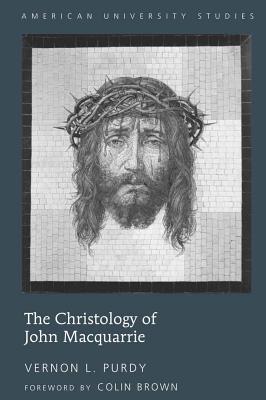The Christology of John Macquarrie comprehensively scrutinizes the life and writings of Scottish-born systematic theologian and philosopher John Macquarrie (1919-2007) in an attempt to comprehend and evaluate his Christology. The author examines the people (e.g. Heidegger, Schleiermacher), the philosophical and theological positions, and the writings that formed Macquarrie's thinking. One major influence was his commitment to modern critical theology including the premise that, in the modern world, the only acceptable Christological tenets are those that can stand up to the scrutiny of modern critical reasoning. The work concludes that this commitment profoundly shaped Macquarrie's theology, especially his Christology.
The book also discusses Macquarrie's evaluation and criticisms of the Christology of other theologians (e.g. Kierkegaard, Moltmann, Pannenberg, and others), concluding that Macquarrie's understanding of the Christian faith and the person of Jesus Christ is consonant with modern liberal Anglo-Catholicism. This idea furthers the argument that Macquarrie's reluctance to accept traditional incarnational categories suggests that his Christology is a modern form of Adoptionism.
| FindBook |
有 1 項符合
The Christology of John MacQuarrie: Edited by Naomi Purdy - Foreword by Colin Brown的圖書 |
 |
The Christology of John MacQuarrie: Edited by Naomi Purdy - Foreword by Colin Brown 作者:Purdy 出版社:Peter Lang Inc., International Academic Publi 出版日期:2009-03-31 語言:英文 規格:精裝 / 345頁 / 普通級 |
| 圖書館借閱 |
| 國家圖書館 | 全國圖書書目資訊網 | 國立公共資訊圖書館 | 電子書服務平台 | MetaCat 跨館整合查詢 |
| 臺北市立圖書館 | 新北市立圖書館 | 基隆市公共圖書館 | 桃園市立圖書館 | 新竹縣公共圖書館 |
| 苗栗縣立圖書館 | 臺中市立圖書館 | 彰化縣公共圖書館 | 南投縣文化局 | 雲林縣公共圖書館 |
| 嘉義縣圖書館 | 臺南市立圖書館 | 高雄市立圖書館 | 屏東縣公共圖書館 | 宜蘭縣公共圖書館 |
| 花蓮縣文化局 | 臺東縣文化處 |
|
|
圖書介紹 - 資料來源:博客來 評分:
圖書名稱:The Christology of John MacQuarrie: Edited by Naomi Purdy - Foreword by Colin Brown
內容簡介
|











